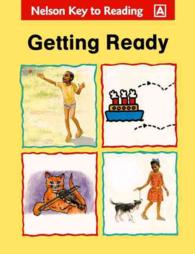Full Description
News media reporting on female political violence invariably portrays the perpetrators as duped, naïve and exploited, acting from personal rather than political motivations, as anomalous intruders in a masculine realm and de-feminized as monsters. By diminishing their agency, the challenge that women's violence poses to the gendered national order is contained.
Drawing on five comparative case studies spanning more than 70 years of militant campaigns against the UK and France, this book interrogates how media representations of politically violent women are shaped by gender, race, religion, class and geography. It considers how women's political violence is framed, what influences these portrayals, and what ideological work they perform. In answering these questions, the book reveals how these representations operate as a battleground where the nation's gendered boundaries are defined and defended, and the national order is reproduced.
Contents
Introduction
1. Decolonization campaigns: the Kenya Land and Freedom Army (Mau Mau) 1952-60 and Algeria's National Liberation Front (FLN) 1954-62
2. Separatist political violence: the Provisional IRA 1969-97 and the National Liberation Front of Corsica (FLNC) 1976-present
3. Leftist political violence: women of the Angry Brigade (1970-72) and Action Directe (1979-87)
4. Jihadist political violence: post-2001 jihadist campaigns in the UK and France
6. Ultra-right political violence in the UK and France in the twenty-first century
6. At the border of order
Conclusion







